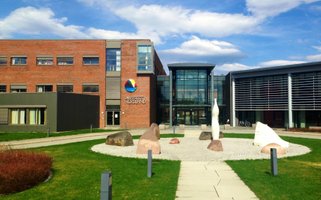Ove D. Jakobsen
Professor Ecological Economics
e-mail: ove.d.jakobsen@nord.no
Cources autumn 2017
Business School/Nord university
- Presentations
- Books
- Articles
- Magazines
- Chronicles
- Links
- Teaching
- CV
- Front page
Bachelor: Examen Philosophicum
Informasjon om kurset her
Målet med Examen Philosophicum er å gi studentene innføring i sentrale posisjoner, teorier og ideer innenfor vestlig filosofi. Ikke-vestlige tradisjoner som for eksempel Buddhisme blir også forklart og diskutert. Det blir lagt stor vekt på øvelse i kritisk refleksjon over dagsaktuelle utfordringer i lys av filosofisk kunnskap og forståelse. Lærestoffet er valgt ut slik at temaene skal ha relevans for videre studier innenfor humanistiske fagområder, og samfunns- og naturvitenskaper. Kunnskap om vitenskapenes tenke- og arbeidsmåter og øvelse i dialog på tvers av ulike fagområder inngår også som en del av kurset. Lærestoffet blir presentert og diskutert i ulike moduler; Virkelighetsoppfatning og vitenskapelig forståelse, ekspertise og kunnskap, evolusjon, diversitet og etikk, økonomi, natur og samfunn, religion, kunst og frihet, og massemedias rolle i det moderne samfunnet. Ingen kostnader utover semester avgift og pensumlitteratur
Master of Science: Transformative Ecological Economics FE312E
Information here
Ecological economics is a transdisciplinary science in continuous development. Based on a deeper understanding of the interaction between economy, nature and society, the course discuss how to implement a process towards development of sustainable societies characterized by high quality of life within viable ecosystems. Achieving the goals requires fundamental changes in economic theory and practice.
Anchored in a description and discussion of different sources of inspiration for the development of ecological economics, future change is highlighted and evaluated along several dimensions, worldview, economic system, economic practice and individual behaviour.
To be creative and innovative, it is not only necessary to look far ahead in time, it also necessary to have knowledge of historical processes. The dynamics of historical development are analysed based on the tension between ideology and utopia.
Through theoretical insights and practical examples, the students provide a good foundation for developing and implementing economic and social responsibility in business, non- profit organizations, NGO’s and public administration.
PhD.: Philosophy of science and research ethics
Information here
Course contents:
The course provides doctoral students opportunities to become familiar with different perspectives in the philosophy of science and research ethics with general relevance for social sciences and economics. The debates about the nature of scientific methods, theories of confirmation, the demarcation of science from non-science, evolutionary and revolutionary theories of scientific development. The connection between multi-disciplinarity, inter-disciplinarity and trans-disciplinarity will be discussed and illustrated. The ideas behind scientific realism and narrative research methodology are discussed. The course will pay special attention on the philosophical and methodological preconditions in the research projects of the participants.
